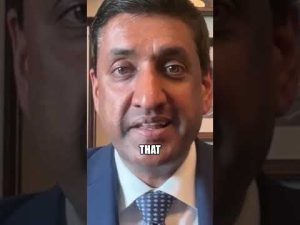**The Challenges of Fatherlessness in the Black Community: A Closer Look**
In recent discussions surrounding societal issues, a spotlight has been cast on the challenges facing the Black community, particularly the issue of fatherlessness. This topic is not just a matter of numbers, but rather a complex web of cultural, historical, and socio-economic factors that intertwine to create a unique landscape. Despite systemic racism being frequently cited as a primary cause of many societal issues, it is essential to delve deeper and consider the multifaceted nature of these challenges, including the critical role fathers play in family structures.
Statistics show that fatherlessness is significantly pronounced in the Black community. This absence of fathers can lead to various adverse effects on children, including a higher propensity for engaging in criminal behavior. Many argue that a stable family environment provides children with the guidance and support they need to make positive life choices. When fathers are absent, children may lack this crucial support system, leading to a higher likelihood of falling into cycles of poverty and crime, which can perpetuate a never-ending cycle of disadvantage.
Interestingly, while poverty is often viewed as a predominant driver of crime, the reality is more nuanced. Many families across all racial groups experience poverty, yet they do not commit crimes at the same rates. This raises an important question: What separates these communities? The answer often circles back to the home environment and the values instilled within it. A strong family structure, with both parents present, tends to nurture values that deter criminal activity, creating a pathway out of poverty rather than deeper into it.
There is a narrative that suggests external factors, such as systemic racism, are to blame. While it cannot be denied that systemic issues exist and affect minority communities, focusing solely on these factors detracts from addressing the internal cultural dynamics at play. Culture significantly influences behavior, and when certain behaviors become normalized or accepted, it can lead to the perpetuation of issues like fatherlessness. In many affluent communities, a stigma exists around abandoning one’s parental responsibilities; however, this stigma appears less prevalent in some inner-city communities, influencing the choices made by young men regarding fatherhood.
Moreover, support systems like food stamps, subsidized housing, and charities are available to assist those in need. This prompts the inquiry: why does assistance not translate to lower crime rates? One answer may lie in the struggle against a mentality that views crime as a viable means of survival. Instead of focusing on crime as a means of addressing poverty, communities might benefit from emphasizing the importance of strong family structures, personal responsibility, and the understanding that one’s choices ultimately shape their reality.
In conclusion, while systemic issues undoubtedly contribute to the challenges faced by the Black community, there remains a pressing need to address the intimate dynamics of family life. Rebuilding the family unit requires looking beyond external factors and considering the values and norms that govern behavior within the community. A concerted focus on encouraging fatherhood and stable family structures may be the key to breaking the cycle of poverty and crime that affects so many. Only by fostering a strong family environment can we hope to uplift the community and pave the way for a brighter future.







